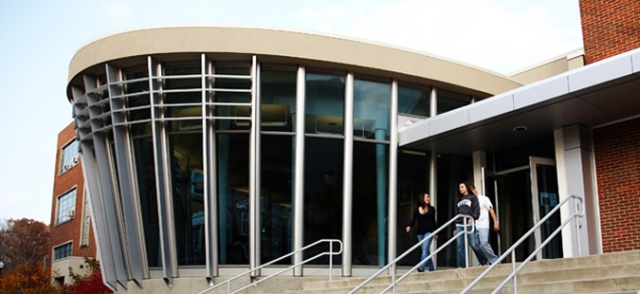FOXD1–ALDH1A3 Signaling Is a Determinant for the Self-Renewal and Tumorigenicity of Mesenchymal Glioma Stem Cells
Document Type
Article
Publication Date
12-2016
Publication Source
Cancer Research
Abstract
Glioma stem–like cells (GSC) with tumor-initiating activity orchestrate the cellular hierarchy in glioblastoma and engender therapeutic resistance. Recent work has divided GSC into two subtypes with a mesenchymal (MES) GSC population as the more malignant subtype. In this study, we identify the FOXD1–ALDH1A3 signaling axis as a determinant of the MES GSC phenotype. The transcription factor FOXD1 is expressed predominantly in patient-derived cultures enriched with MES, but not with the proneural GSC subtype. shRNA-mediated attenuation of FOXD1 in MES GSC ablates their clonogenicity in vitro and in vivo. Mechanistically, FOXD1 regulates the transcriptional activity of ALDH1A3, an established functional marker for MES GSC. Indeed, the functional roles of FOXD1 and ALDH1A3 are likely evolutionally conserved, insofar as RNAi-mediated attenuation of their orthologous genes in Drosophila blocks formation of brain tumors engineered in that species. In clinical specimens of high-grade glioma, the levels of expression of both FOXD1 and ALDH1A3 are inversely correlated with patient prognosis. Finally, a novel small-molecule inhibitor of ALDH we developed, termed GA11, displays potent in vivo efficacy when administered systemically in a murine GSC-derived xenograft model of glioblastoma. Collectively, our findings define a FOXD1–ALDH1A3 pathway in controling the clonogenic and tumorigenic potential of MES GSC in glioblastoma tumors.
Inclusive pages
7219-7230
ISBN/ISSN
0008-5472
Copyright
Copyright © 2016, American Association for Cancer Research
Publisher
American Association for Cancer Research
Volume
76
Peer Reviewed
yes
Issue
24
eCommons Citation
Cheng, Peng; Wang, Jia; Waghmare, Indrayani; Sartini, Stefania; Coviello, Vito; Zhang, Zhuo; Kim, Sung-Hak; Mohyeldin, Ahmed; Pavlyukov, Marat S.; Minata, Mutsuko; Valentim, Claudia L.L.; Chhipa, Rishi Raj; Bhat, Krishna P.L.; Dasgupta, Biplab; La Motta, Concettina; Kango-Singh, Madhuri; and Nakano, Ichiro, "FOXD1–ALDH1A3 Signaling Is a Determinant for the Self-Renewal and Tumorigenicity of Mesenchymal Glioma Stem Cells" (2016). Biology Faculty Publications. 235.
https://ecommons.udayton.edu/bio_fac_pub/235
COinS




Comments
Permission documentation on file.